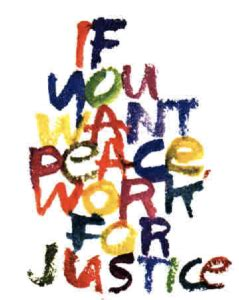Reflecting on Matthew 18:21-35
Many
a times, we have heard dominant groups complaining how one group of oppressed
community oppress another group of oppressed community, and argue that the
system of oppression has always have a spiralling effect. We need to make it
clear that oppression done by any person is against the will of God, which
calls to stand in the light of justice, calling to address and defeat it
through liberative means & methods. However, we should not miss the larger
narrative in this frame, which is the ploy of power to deviate the struggle
from fighting the larger evil of dominance by trying to focus on the conflicts
and divisions between and among the oppressed communities. By magnifying the
conflicts between the oppressed groups, the dominance of the dominant groups is
left untouched, for they continue to exercise power unabated, due to which the
saying ‘the king is always right’ has gained currency.
The
passage from Matthew 18:21-35, has been one such passages which has been used,
quoted and interpreted from the perspective of colonial episteme highlighting
how one ‘forgiven’ slave oppresses another of his fellow slave, by unforgiving
and acting cruel to him. Towards the end the ‘forgiven’ slave is turned to be ‘unforgiven’
and further tormented to pay back his debts to his master.
It
is Peter who is asking Jesus about limits of forgiveness to his neighbour in a
Church, who commits sin against him. Jesus replies to Peter by de-limiting the
limits that he has set for forgiveness from seven times to either seventy-seven
times or seventy times seven, by which he proclaims forgiveness comes unlimited
and unconditional. This is the gospel of this passage. A postcolonial reading
of this text further elucidates this point.
In
a context where slavery was so prevalent under the Roman empire, this given
passage, the system of slavery is left unattended by eulogising the acts of
pity & power by the king, and by criminalising the acts of the
forgiven-unforgiven slave. The king and his authority to employ slaves is
uncontested because one of the tenets of empire is ‘king is always right.’ In order
to establish that the ‘king is always right’ it has to be the ‘slaves who are
always wrong.’ The forgiveness given to the slave with larger amounts of debt
was only of his financial debts out of king’s ‘pity’ and by the pleading speech
of this powerless person. This person though was released by the king, he
continued to be called as a slave, and towards the end of the passage the king
calls him ‘wicked slave,’ which conveys that this powerless person continued to
live in slavery, for there has been no change in his status or personhood. Once
a salve always is a slave, for this jeopardises the very understanding of
forgiveness from the gospel. Did the king seek forgiveness from this
forgiven-unforgiven person for being a perpetrator of the system of slavery? No
doubt, the king and those in power enjoy impunity from times immemorial till
today. Imagining if the king as an act of reparation has forgiven this person
from his large amount of debt at one instance, waited for an opportunity at another
instance to get it back by any means and took the opportunity to tormenting him
till he repaid his debt back.
Peter
has asked Jesus how many times should we forgive, and further asked is it seven
times? The king in this text was not able to forgive his debtor for a second
time, forget about seventy- seven times. The text rightly ends in verse 35, by
saying ‘my heavenly father will also do to every one of you, if you do not
forgive your brothers and sisters from your heart.’ The king need not always be
right, for forgiveness comes from God to all people of God.
Allow
me to reiterate the gospel once again from this passage:
·
Forgiveness does
not come with limits or conditions, for divine forgiveness is unlimited and
unconditional and is impartial, as revealed in Jesus Christ.
·
Power dynamics
should not go unattended and uncontested in any act of forgiveness, for those
in power don’t enjoy impunity in the sight of God of justice.
·
Forgiveness and forgiven-ness
go hand in hand, for to be forgiven is to forgive, and to forgive is to be
forgiven.
Rajbharat
Patta,
13th
September 2017


